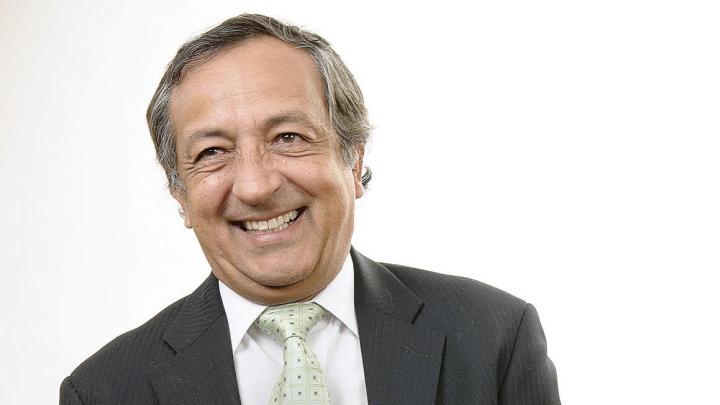The Advanced Leadership Initiative (ALI) fellows’ courses of action range widely: from raising awareness of sex trafficking in Boston to deploying a mobile app for real-time evaluation of food’s nutritonal value; from moderating environmental impacts by improving grazing practices for beef cattle to combating childhood obesity by creating rewards programs for lower-calorie meals; from building online resources to help families coordinate autism care to accelerating global certification of “B Corporations” that pursue economic gains and social benefits. Here are snapshots of a few recent fellows’ projects.
Training Internet-era apprentices. Having watched his father and others invest in and advise entrepreneurs on growing nascent companies, Miguel Rey, M.B.A. ’83 (a native of Bogotá, Colombia, now living in South Florida), emphasizes “the enormous value of mentorship.” As vice chair of a computer-networking company in Rhode Island (a state suffering very high unemployment), Rey became involved in its mentoring and apprenticeship program. With technologically proficient people scarce, the company began training its own workforce, while offering full pay and benefits for a year; the apprentices acquire technical proficiency and receive guidance on a competitive work ethic and the “soft” skills needed to succeed. Trainees (ranging from a track-and-field coach to a construction worker, and including the unemployed) all found placements at the company or with customers, enlarging the computer ecosystem—and typically nearly doubled their income.
This is precisely the kind of investment recommended by the experts involved in Harvard Business School’s U.S. Competitiveness Project (see “Can America Compete?” September-October 2012, page 26). Rey aims to expand it to biotechnology and other industries in Rhode Island, and to develop a curriculum for such training. The result, he said, is that “Human beings will be able to do more because they are more.”
Elevating logistics in China. Drawing on decades of experience as a lawyer and trade-association executive involved in international logistics, and representing China’s national shipping line, Richard D. Gluck, based in Washington, D.C., launched a Sino-American logistics council to help the swiftly urbanizing People’s Republic promptly cut tremendous waste in food transportation, reduce energy-wasting return trips of empty freight trucks, and accelerate rail shipping of trailers and freight containers.
Making writing exciting. David Weinstein, a 2011 fellow and 2012 senior fellow, worked with “really smart people” at Fidelity Investments, where he was chief of administration. But he found their written communications, especially across disciplines, subject to misinterpretation and “often filled with jargon.” Teaching at Boston College Law School, he saw a similar need to improve students’ writing. As an ALI fellow, he explored with Harvard Graduate School of Education (HGSE) experts how students learn to write effectively. With HGSE students, he evolved an online platform, Write the World (www.writetheworld.com), that engages high-school pupils in writing in an interactive tutorial setting: they submit work in response to a prompt, and then receive comments from trained reviewers—a rarity in the school context, where teachers are hard-pressed for time.
The low-cost platform challenges students and enables them to build a portfolio of their work. Weinstein and his team are expanding distribution by partnering with nonprofit groups, like Zoo New England, that encourage writing for subject-matter competitions, as a way of demonstrating the value of the program to school systems.
Managing mental health. As governments have deinstitutionalized care, people with severe mental illness and their families have had to navigate uncoordinated programs and services; for many mentally ill Americans, “care” is treatment in the emergency room or a cell, punctuating periods of homelessness. Ronald A. Lauderdale, a former vice president and assistant general counsel at IBM, and his wife, Valerie Lauderdale, participating as an ALI partner, probed Connecticut’s program to coordinate mental healthcare for this population. Their analysis points toward business initiatives—fee-for-service care in more affluent areas; continuing-education programs for health professionals; and after-care services that save hospitals money compared to readmission of indigent patients—that could strengthen the program’s finances and enable it to fulfill unmet needs.
Helping children think big. How can children in impoverished households imagine the sort of better future (becoming an engineer or a Supreme Court justice) that is routine for those in more fortunate environments—and then tie that vision to their education? Floridian Susan G. Johnson, who has been principal of a private investing and management company, has developed a “dream-big” learning tool, “Lead a Brilliant Life,” that, for example, ties the letter “a” to “architect,” provides an illustrative role model, invites play and storytelling about the role, and links it to school lessons. “Kids live what they know,” she said, “so let’s be sure they know more.” She is working to secure distribution in daycare centers and after-school programs.
Re-humanizing medical care. Alarmed at the loss of “the physician as the healer of ills, not just the fixer of problems,” and doctors’ pervasive discontent with their profession, Vincent de Luise, a Connecticut ophthalmologist, devised “The Course in Compassion,” intended to reform medical-school curriculums by introducing instruction in art, observation, narrative, mindfulness, and empathy training—all grounded in humanism and humanities disciplines.










